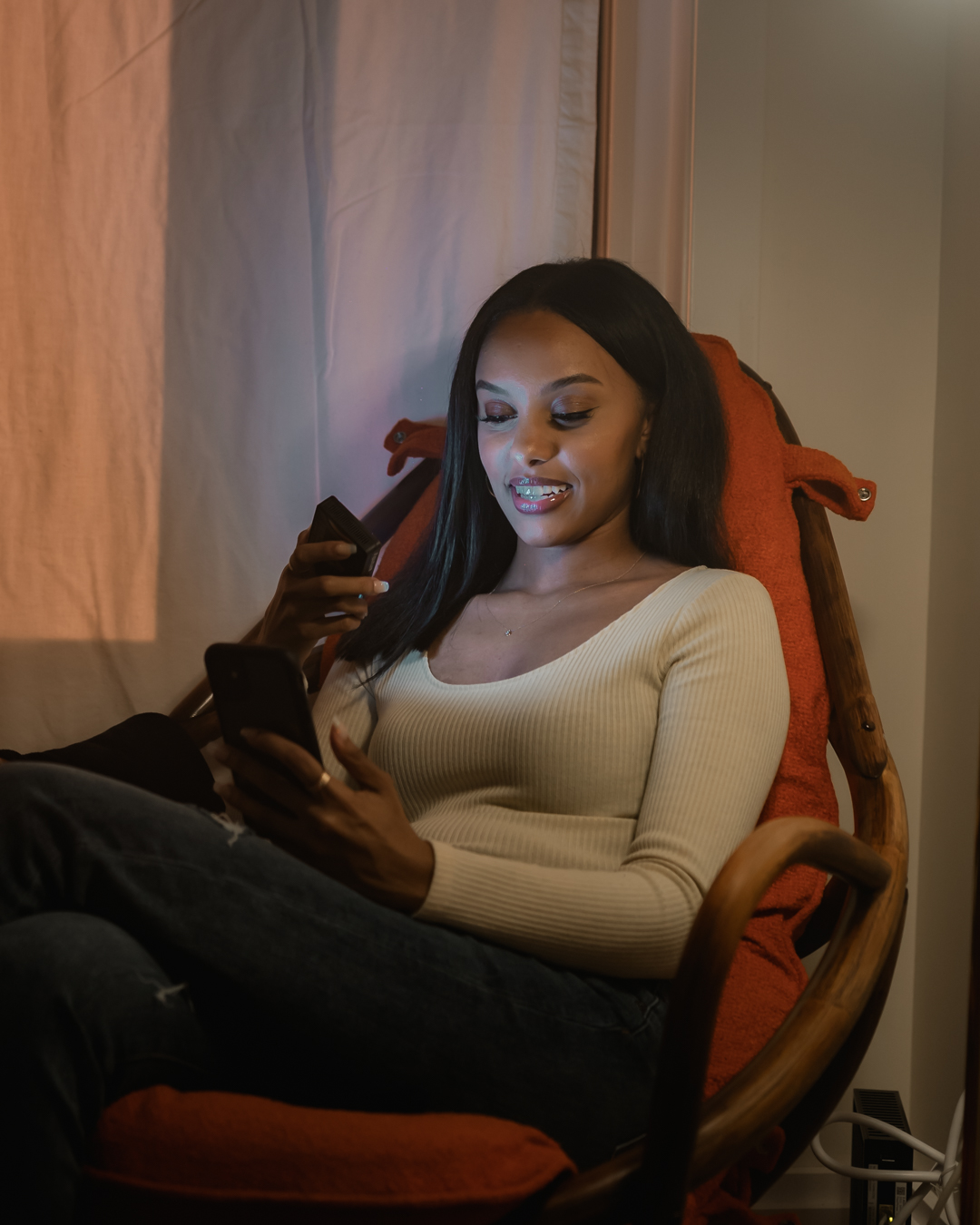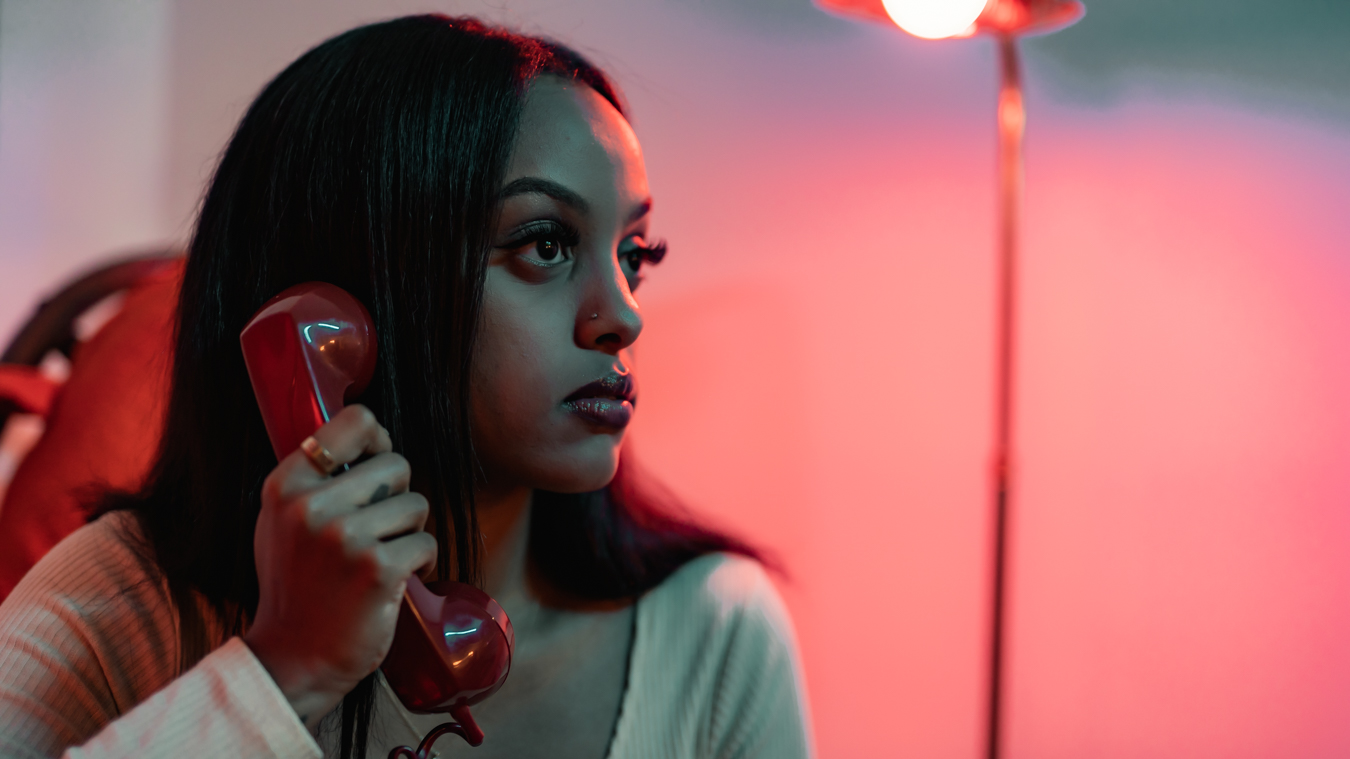
Back in 2015, you couldn’t help but stumble upon the soulful & delicate sounds of Canadian/Ethiopian artist Ruth B. Her breakout viral hit ‘Lost Boy’ inspired by the world of Peter Pan’s Neverland, deals with the feeling of being lost & found. For some, viral fame is fleeting — it comes and goes just as quickly. For Ruth B, the response to ‘Lost Boy’ is what gave her the push to pursue music as a career; it reminded her that she, too, has a voice and thoughts that people are interested in.
Five years, two EPs, and a debut album later, Ruth B. has continued to be a songwriter that not only captures her listeners’ attention immediately but the emotions of a generation, most recently showing this through her track ‘If I Have A Son’, inspired by the Black Lives Matter movement and racial issues happening throughout the world.
Her new single ‘Dirty Nikes’ is a perfect insight into Ruth B’s past relationship. In the vulnerable track, she details how it feels to not hate the person you’re no longer with, but desperately wanting to in order to move on.
We had a chat with the Canadian singer about how viral fame impacted her career, racism in Canada, and her new song & video ‘Dirty Nikes’, premiering today on LADYGUNN.
It’s been five years since you released your track ‘Lost Boy’. How would you say your music and songwriting has grown over the last five years?
Like anything, it kind of evolves over time. In the past five years, I’ve been able to work with a lot of amazing producers and writers and I’ve grown a lot because of a bunch of different experiences. I’ve changed quite a bit so my music has changed with me.
You went viral with the song — I know you’ve likely been asked this a lot, but has going viral impacted your creativity or how you create your work? Is it something that you felt hindered your creativity because of pressure or did you embrace it?
It helped me begin songwriting more — I don’t think I would’ve continued writing music if going viral did not happen. It inspired me knowing that people wanted to know what I had to say. It encouraged me to write more. Going viral was kind of nice in that sense.
Where do you typically get your songwriting inspiration from? What’s your creative process?
Inspiration, for me, comes from life itself. It could be what I’m going through at a certain time or what’s going on around me in the world. The writing process is pretty diverse now; at the beginning it was a formula where I’d sit down and write, but now I’m all over the place and write wherever. I could be feeling a certain emotion that fits the song or I think of a certain lyric or I hear a melody in my head and then I decide to write.
Your song ‘If I Have A Son’ is an incredibly powerful track inspired by the Black Lives Matter movements. It is a song that carries a lot of emotion and weight; it focuses on something so many Black mothers feel every single day when their kids leave the house. What was the experience like writing and recording that track?
That was a reaction to everything that was going on at the time but it also was something that I’ve been thinking about for a really long time. It was a very honest moment; I didn’t even think I was going to put it out. It was very much a reaction to what I was feeling at the moment and the reaction to it made me feel like people really resonated with the message.
I know you’re from Edmonton and I’m from Toronto and people both outside and within Canada seem to think it’s something of a utopia where everyone is quite accepting, which isn’t the case in regards to systemic racism. Why do you think that’s something the world thinks of Canada?
I don’t really know! I think it’s probably because of our proximity to the US and we seem very different compared to America, so I think in that sense people just automatically assume we are better in regards to social issues. I went to my first protest in Edmonton and there were 15,000 people there so for me it was really nice to know that people are aware that there is a big issue in Canada as well and it’s something that needs to be talked about and taught as well.
You’re also from Ethiopia—how has your Ethiopian background influenced your own music and songwriting?
Definitely! I grew up with music from Ethiopia playing in the house so it’s definitely inspired my work. Subconsciously it has influenced the way that I write and the melodies that I use. It’s such a rich culture and so much of the music is vibrant and very focused on storytelling which I try to use in my own songwriting.
Can you tell me a little bit about the song ‘Dirty Nikes’ and the concept behind the video for the track?
I wrote ‘Dirty Nikes’ a year ago in New York with another songwriter and it was one of the first songs that I wrote when I was living in New York. It was amazing to work with other people in a new city. It’s a really honest song about where my head was at during that time. The video was shot at home in Edmonton because of Covid but it ended up being a really cool experience with a really great director. The video follows the song and paints a picture of a relationship and where I was emotionally at the time.
The song has lyrics like ‘I don’t hate you/i just gotta learn to’ which I feel like every person can relate to. It’s quite an open & vulnerable song. Are you ever hesitant to release art about certain events or people?
Yeah, definitely. I used to be a lot more nervous about letting people hear that stuff because to some people it’s just a song but to me it actually happened—it’s part of my life. But now I’ve grown past that and I’ve learned to embrace my truth and my story; that’s all that matters. There used to be some hesitation to put some stuff out but that’s gone now.
The editing & effects for the video for Dirty Nikes really adds to the impactfulness of the video, with juxtaposing clips of you alone and you with your significant other. When you’re songwriting, are you someone who already has the visuals planned out in your head or is that something you figure out later?
It depends on the song. For me, not really. I don’t think about visuals until there’s a video concept. When I’m writing a song, I’m very much in the moment and thinking about the lyrics and the people or events that inspired it.
Were the Nikes that you used in the video actually your ex’s?
[Laughs] They were just something we got for the video! I didn’t even find them, the director did. They were such a deep red & looked really great for the video.
What do you hope people take away from the song after hearing it?
I think when you’re going through a breakup or any type of loss, it always feels very dramatic, so I hope people feel that it’s okay to have these feelings and know that all of the stuff you wouldn’t say out loud—like I don’t hate you, but I want to—is okay to think.
I loved the little clip of your cover of me Lover by Taylor Swift on your Instagram last fall! Have you checked out her new album yet?
I have! I love it. It’s really amazing, I’m a huge Taylor Swift fan.
What are some of your favourite tracks from the new album?
I love ‘invisible string’, ‘the 1’, ‘peace’, and ‘hoax’. It’s so good.
Lastly, what else is coming up for you this year?
Hopefully more music in September and an album! I’ve been working on it for a few years but I’m not sure if it’ll be the end of this year or the beginning of next, but it’s coming.

CONNECT WITH RUTH B.
INSTAGRAM // TWITTER // SPOTIFY
photos / courtesy of artist
story / Kelsey Barnes
